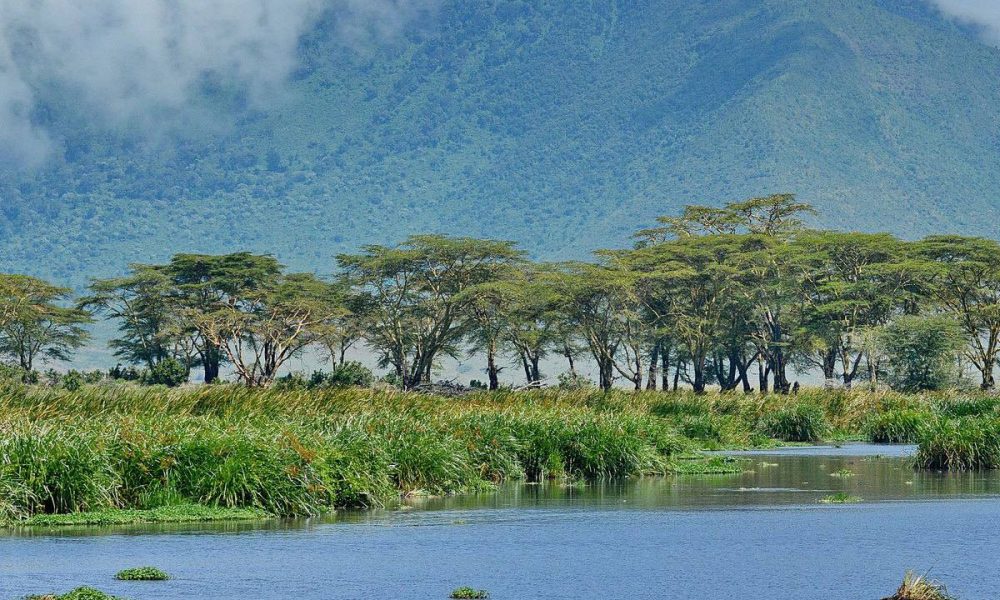Call /WhatsApp: +255 788 738494

The Ngorongoro Conservation Area in northern Tanzania is one of Africa’s most iconic safari destinations. Home to the vast volcanic Ngorongoro Crater, this UNESCO World Heritage Site shelters Africa’s Big Five elephants, lions, leopards, buffaloes, and rhinos along with wildebeests, zebras, and countless bird species. Unique among safari parks, it is also a place where wildlife coexists with the semi-nomadic Maasai people, who graze their livestock alongside wild animals.
The name Ngorongoro originates from the Maasai word for the sound of a cowbell, ngoro ngoro, reflecting the deep pastoral connection to the land.
Located inside the Ngorongoro Crater, Lake Magadi is a shallow alkaline lake that attracts thousands of pink flamingos. Lesser flamingos, with their red bills, feed on algae, while greater flamingos add to the spectacular scenery.
This beautiful forest of yellow-barked acacias is home to elephants, rhinos, elands, bushbucks, and countless bird species, making it one of the most biodiverse areas in the crater.
Close to Ngorongoro, the world-famous Olduvai Gorge and Laetoli are significant archaeological sites where ancient hominin fossils and tools trace back millions of years, telling the story of early human evolution.
The Shifting Sands are unique volcanic dunes formed from the ash of Ol Doinyo Lengai. These black sand dunes move slowly across the plains at around 15 meters per year, creating a rare natural wonder.
Just beyond Ngorongoro Crater, Olmoti Crater offers quiet grasslands with streams that form waterfalls, while Empakaai Crater features a deep soda lake, often surrounded by flamingos.
The remote Gol Mountains are a dramatic wilderness of pink cliffs and serve as a bottleneck for the annual Great Migration of wildebeests and zebras on their return to the Serengeti.
Nasera Rock is an archaeological site and wildlife haven for baboons, klipspringers, and birds. The nearby Salei Plains and Ol Karien Gorge are vital nesting areas for vultures, particularly during the Great Migration.
The bamboo-clad Oldeani Mountain feeds streams that support the Lerai Forest. Nearby, Lake Eyasi is home to the Hadzabe tribe, traditional hunter-gatherers who still live off the land.
To the northeast, the sacred volcanic mountain Ol Doinyo Lengai, known as the “Mountain of God” to the Maasai, towers above the Rift Valley. Its recent eruptions and proximity to Lake Natron create a dramatic natural landscape.
Visitors can enjoy a wide range of activities, including:
The best time to visit Ngorongoro National Park is from June to October, during the dry season when wildlife viewing is at its peak, and game drives are less affected by muddy conditions. The wet season (November to May) brings lush landscapes and migratory birds, making it a beautiful alternative for those seeking fewer crowds.
Do you need help?
Send us details